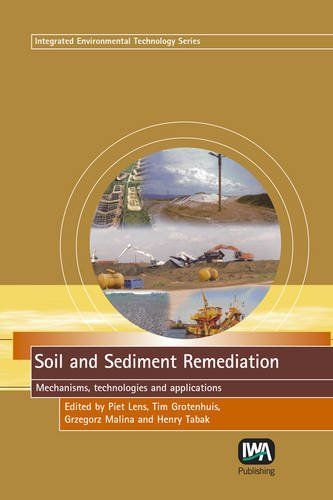
Soil and Sediment Remediation Mechanisms, Technologies and Applications
Soil and Sediment Remediation discusses in detail a whole set of remediative technologies currently available to minimise their impact. Technologies for the treatment of soils and sediments in situ (landfarming, bioscreens, bioventing, nutrient injection, phytoremediation) and ex situ (landfarming, bio-heap treatment, soil suspension reactor) will be discussed. The microbiological, process technological and socio-economical aspects of these technologies will be addressed. Special attention will be given to novel biotechnological processes that utilise sulfur cycle conversions, e.g. sulfur and heavy metal removal from soils. Also the potential of phytoremediation will be highlighted. In addition, treatment schemes for the clean-up of polluted megasites, e.g. harbours and Manufactured Gaswork Plants (MGP), will be elaborated. The aim of Soil and Sediment Remediation is to introduce the reader in: the biogeochemical characteristics of soil and sediments- new techniques to study soil/sediment processes (molecular probes, microelectrodes, NMR) clean up technologies for soils polluted with organic (PAH, NAPL, solvents) or inorganic (heavy metals) pollutants- preventative and remediative strategies and technologies available in environmental engineering novel process applications and bioreactor designs for bioremediation the impact of soil pollution on society and its economic importance.